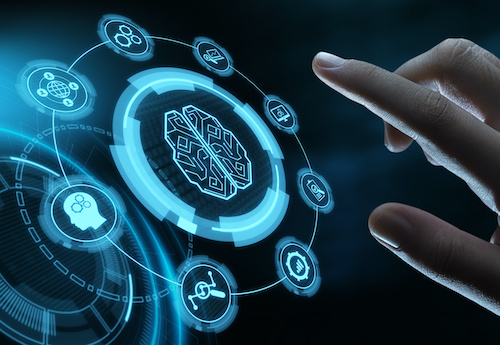Key points:
- A new survey highlights potential complications down the road as AI takes hold in classrooms
- Many districts don’t currently offer professional development for AI
- See related article: Edtech leaders offer guidance on safe AI classroom integration
- Everything You Need To Know About AI In Education
A majority of teachers and administrators in a recent survey believe artificial intelligence (AI) will have a significant impact on teaching and learning–but that impact may not be all positive, as roughly half of surveyed teachers believe AI will make their jobs more challenging.
As artificial intelligence (AI) quickly becomes a focal point in U.S. schools, the new survey of educators and administrators conducted by Clever, a digital learning platform, underscores the need for greater preparation for educators and administrators on the use of the emerging technology in classrooms.
Clever conducted a comprehensive survey of over 1,500 teachers and administrators nationwide, coupled with insights from over 100 leading edtech companies in spring 2023. The findings emphasize the need for the edtech sector to proactively address the emerging challenges and opportunities presented by AI.
Divergent views on the impact of AI among teachers and administrators: Eighty-five percent of teachers and 78 percent of administrators believe AI will have a significant impact on teaching. However, a striking discrepancy emerges when they consider the consequences: Half of the teachers surveyed (49 percent) express concern that AI will make their jobs more challenging within three years, while a similar proportion of administrators (46 percent) envision AI easing the teachers’ workload.
While educators are concerned that AI may pose challenges to their job, 63 percent of teachers report that edtech has significantly streamlined their work, freeing up time to better support students – and themselves.
Schools and districts lack of preparedness for AI: Considering rapid developments in generative AI, it may come as no surprise that 89 percent of districts do not currently offer AI-focused professional development despite recognizing its impending impact. At the same time, 96 percent of teachers report not having received professional development or training on the topic, revealing a potential opportunity to better support educators for AI’s future role in education.
Edtech developers take cautious approach to AI adoption: While 80 percent of edtech companies surveyed believe generative AI will have a moderate to significant impact on teaching, 39 percent report that it’s currently shaping their product roadmap.
“AI is changing the way we approach education, and this shift is happening faster than most people realize,” said Trish Sparks, CEO of Clever. “As a former teacher, I see the potential to streamline administrative work for educators so they can invest in what’s most impactful – learning in the classroom.”
The full survey report, which included perspectives from 1,000 teachers and 500 administrators, will be released later this summer and examines educators’ experiences and perceptions of edtech.
Related:
Is AI the future of education?
How AI enhances personalization in education
- Friday 5: Virtual field trips - April 26, 2024
- Google, MIT RAISE launch no-cost AI training course for teachers - April 26, 2024
- 4 ways to support work-based learning - April 23, 2024

